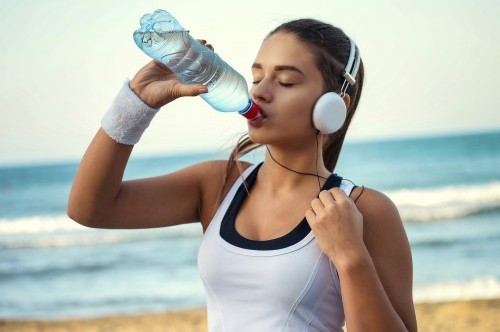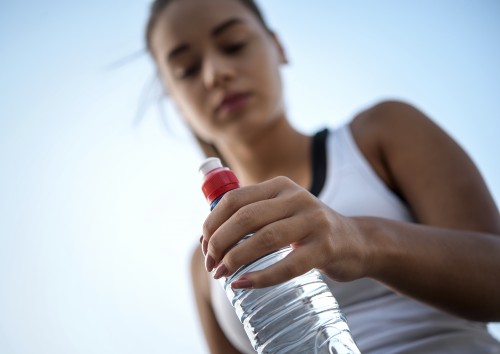Room Temperature vs. Ice-Cold Water: Which is Better?
 You have just finished a long, tiring workout. You are thirsty, so you reach for your water bottle that you had chilled in the refrigerator, and it is still cold. Nothing feels quite as good as having ice-cold, refreshing water after a hot and sweaty day at the gym.
You have just finished a long, tiring workout. You are thirsty, so you reach for your water bottle that you had chilled in the refrigerator, and it is still cold. Nothing feels quite as good as having ice-cold, refreshing water after a hot and sweaty day at the gym.
Generally speaking, any type of water—whether cold or at room temperature—is good for you during exercise, but there are still subtle differences between the two. While ice-cold water makes you feel good physiologically, you might also be surprised to find out that it can also affect not only your workout performance, but also the results in resting state, even hours afterwards. With the question of whether it is better to consume water at room temperature or that which has been cooled in the fridge beforehand, many of us are left uncertain of what to drink.
In this article, we will break down the differences between room temperature and ice-cold water, based on its compositions and bodily effects. Without further ado, let’s get started!
Room Temperature versus Ice-Cold Water
Water, in general, is made up of two hydrogen molecules and one oxygen molecules, hence the given chemical composition H2O. Distinguishing between varying levels of water temperature, however, happens at the molecular level. In hot water, molecules move at a quick, frenzied speed, thus bumping into each other often. On the other hand, those in cold water move more slowly, colliding with one another less frequently- by freezing point, they barely move. One can say that room temperature water is the medium between hot and cold water, with its molecules moving at an average speed in relation to the other two extremes.
Effects on the Body during Workouts
In a 2012 study from the Journal of the International Society of Sports Nutrition, researchers found that the core body temperature of its participants, after having performed exercise, increased less in those who consumed cold water, rather than that of room temperature. In fact, the cold water drinkers had a delay in increased core body temperature by an extra fifteen minutes than the room temperature drinkers. However, the study went on to conclude that those who drank cold-water performed less exercise reps than those who had room temperature water, perhaps due to the fact that the body was not warmed up, thus making muscles tense, instead of relaxed.
Furthermore, there has been no conclusion that drinking cold water helps increase metabolism; if anything, it raises one’s core temperature, but has no relation to more calories burned than if consuming room temperature water. Researchers have also suggested that ice-cold water causes blood vessels to shrink, especially in the stomach, which can affect digestion food properly. Then again, drinking cold water after a workout helps cool you down more quickly, as well as satisfying you more.
 So what’s Better for You: Room Temperature or Ice-Cold?
So what’s Better for You: Room Temperature or Ice-Cold?
Although ice-cold water can be delicious and refreshing, it appears that many studies conclude that room temperature water is the way to go. Not only does it allow your muscles to stay warm and relaxed for lifting more reps, but also it helps ease the digestive system more so than cold water, thus allowing fats and other foods to pass through more easily. So the next time you reach for that water bottle, there is no need to chill it in the fridge beforehand- saves time and energy!






